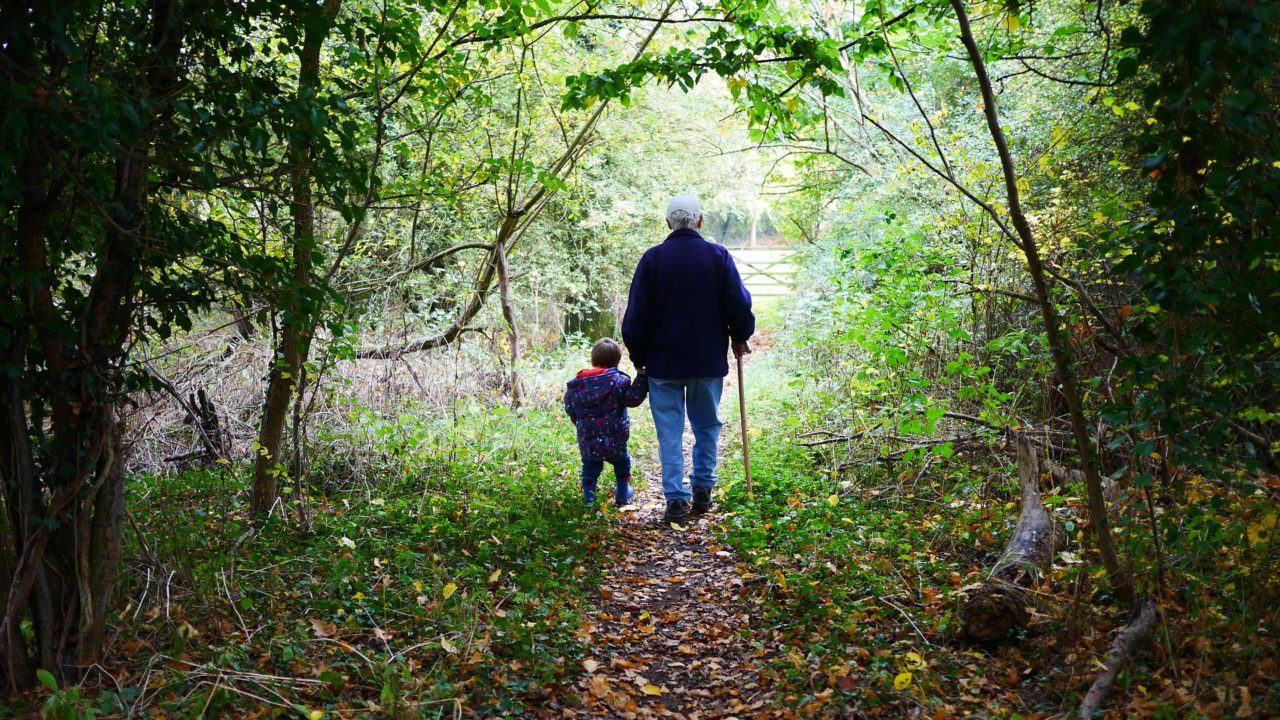How Grandparents and Special Friends Can Help By Reaching Out to Young Children Remotely
As stay-at-home orders are implemented across the world, many grandparents, aunts, uncles, or special friends are acutely feeling the loss and social isolation of being away from the children that they care about.
During times of stress and hardship for families, the natural impulse is to gather to help and offer support, but that avenue is temporarily cut-off by the Covid-19 virus. At the same time parents of young children are stressed with working from home, exhausted with the demands of home-schooling, or just needing a break from the non-stop energy needed to be a parent to a young child who is suddenly thrown out of the usually daily routine.
Grandparents, other relatives, and friends may be frustrated by not being able to step in to offer childcare, support, and also to enjoy the company of their special children. While you might not know how to use FaceTime, What’s App, Zoom, Google Hangout, or Skype to connect remotely with these children it is well worth challenging yourself to learn one of these platforms and use it to connect with grandchildren or young children you have special relationships with.
After all, since you are secluded at home, you do have the time to learn something new and very likely the parents of these children would be happy to help you learn. Not only will these children love and look forward to this connection with you, but it will give their parents a break and time for selfcare, or some important call they needed to make without their children being present.
Moreover, you will feel the joy as well as increased intimacy as you see the children’s responses. Simply calling to chat will get old quickly as children are home missing daily routines and activities. Once you get started, you will likely discover all sorts of activities you can make up.
The time that you spend together can be designed to be:
• to be developmentally appropriate and geared to child’s interests
• to be child-directed using narrated commenting to enhance language development,
• to encourage expression of feelings through emotional coaching and pretend play
• to reinforce social skills such as sharing, waiting and helping through social coaching
• to enhance problem solving and confidence through persistence coaching
Tips
• It can be helpful to set up regular video chat times so that the children can look forward to the call and parents know they have that free time for other things
• Invite grandchildren to plan virtual celebrations with you
• Follow your child’s lead and interests when planning the activities
• Be creative and keep the activity simple and interactive
• Narrate what your child is doing and feeling
• Praise and encourage children for their ideas
• Use puppets to narrate children’s activities, share feelings and problems they want help solving
• Use white boards and chats to keep track of their ideas or for praise
• Keep your worries in check during these times
• Check in at times to ask how the children are feeling; offer empathy and understanding and respond in comforting and calm way
• Send virtual hugs frequently
Responding to Covid-19 Questions or Responses
Children will absorb the stress and worry surrounding Covid-19 in their home environment. Don’t be surprised if the virus theme, death, and illness come up your telecommunication play times, drawings, or drama play with puppets. This is completely normal and to be expected. This is a healthy way for young children to work out their feelings of fear. Grandparents and special friends can help children by listening to them and allowing them to express their feelings and can help to filter and interpret the situation and reassure them that they are safe and cared for.
Children under age 6 don’t need specific or detailed information about the virus or the worldwide crisis because they are too young to process the meaning of it. Explanations should be simple, factual and reassuring about the future.
School-aged children will likely have heard about the coronavirus from peers, media, or listening to their parents’ discussions. Rather than one big discussion, you can check in periodically while playing together on-line. Start off by asking children if they have heard of coronavirus and what they have heard or know about it. This provides a starting point on where to take the conversation and what corrective information might be needed. When they ask questions about the virus or their social isolation, take the time to explain what is going on, how the virus spreads, and how they can prevent it by staying at home, and how they can keep themselves and others safe. Encourage them to ask questions and express their worries, feelings of loneliness, or anxiety.
Some older children may want to find ways to be helpful. This might include calling elderly relatives, earning some money to send to a charity, helping take care of younger brothers and sisters, or sending you a picture or story they have made up. This helps them feel a sense of control and frames themselves as a helper. With children of all ages, be sure to spread a calm and patient tone during these discussions. If you seem anxious (which is understandable), this can escalate your child’s anxiety. Remember, stress is contagious, but being calm, playful, and reassuring is also contagious. Even from a distance you can provide valuable support to the children and their parents.
To sign up to our regular Parenting in a Pandemic newsletters click here.

